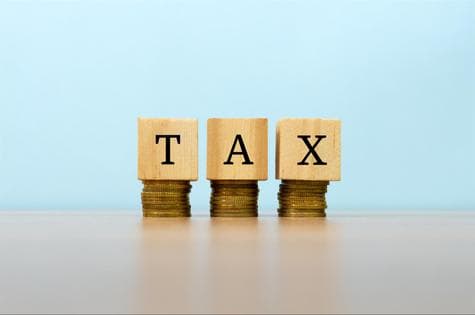Making sense of U.S. sales and use taxes can be difficult. That’s because, unlike most countries, the United States doesn't have a national sales tax. So, there isn’t a standard rate that can be applied consistently to every sale. Rates are set at the state level instead, and with little coordination between state legislatures, they vary widely.
In the wake of the U.S. Supreme Court's 2018 Wayfair ruling (opens in new tab), many states have enacted ecommerce legislation to tax purchases made online. These laws generally apply only to companies meeting certain sales thresholds, but the requirements are subject to change.
Local municipalities can also levy sales and use taxes in many states, creating more complexity. On top of this, surcharges are often added at the city, county and/or district-level to help fund special projects or important services. This multilayered system results in a patchwork of over 10,000 independent tax jurisdictions, each with its own rules and rates. It’s little wonder so many organizations struggle with sales tax collection.
With cash-strapped state and local governments conducting more frequent audits in hopes of increasing revenue, managing sales tax collection and reporting effectively is more important than ever. Collecting the wrong amount of sales tax can have serious consequences:
- Under-collection can result in significant fines, interest payments and other penalties.
- Over-collection leads to unhappy customers and potential lawsuits.
While complying with U.S. sales tax regulations can be challenging, there are a few things businesses can do to make things easier:
- Automate collection and maintenance of sales tax data
Three states (Delaware, New Hampshire and Oregon) have no state or local sales tax. Nine* have state sales tax, but not local ones. For companies that only do business in these locations, managing rate information isn’t that difficult, because state sales and use tax rates seldom change. For companies doing business in any of the 38 states with both state and local sales taxes, however, it’s a bit trickier.
Sales tax rates change frequently at the local level and must be monitored carefully. Tracking these changes in a spreadsheet is time consuming, subject to data entry mistakes and fraught with risk. Sophisticated software with regular updates can account for these changes automatically, avoiding costly errors and automating cumbersome manual processes.
2. Use Zip+4 to calculate the appropriate tax rate
The standard U.S. postal code is the five-digit ZIP. As the name suggests, ZIP+4 is a nine-digit code. Introduced by the U.S. Post Office to improve efficiency, the extra digits identify the physical location of an address with greater precision. This is important, because customers with the same five-digit ZIP don’t necessarily have the same sales tax rate.
A single ZIP code can include multiple tax jurisdictions or contain special zones where additional tax surcharges are levied. So having accurate tax rate data isn't enough; knowing which rates to apply to each order is just as important.
3. Organize tax exempt certificates for easy access
Customers don't like being charged sales tax when they should be exempt. To avoid paying these taxes, organizations must have a valid Tax Exempt Certificate. Because the responsibility for collecting sales tax lies with the seller, it's important to keep accurate records for customers claiming tax exempt status. Failure to do so can result in fines other penalties.
Copies of exempt certificates should be easily accessible to sales, accounts payable and other personnel to make sure exemptions are applied correctly. Expiration dates should also be monitored to ensure tax exemptions are valid at the time a sale is made.
Coping with Complex Tax Requirements
NetSuite's sales and use tax solution, SuiteTax, helps organizations meet complex tax determination and reporting requirements. SuiteTax automates the process of calculating taxes, eliminating manual effort and guesswork that can lead to errors. The latest enhancements to the SuiteTax Engine, now available, make complying with U.S. state and local tax rules easier.
- By keeping sales and use tax rates up to date automatically and supporting the use of more accurate, nine-digit postal codes (ZIP+4), SuiteTax helps ensure the appropriate rates are applied to every sale.
- Because buyers may not be required to pay sales taxes on certain goods and services, tax exempt status can be set at the customer and item-levels, reducing the risk of over collection.
- And with Tax Exempt Certificates readily available, users can check to see if they are valid before completing an order.
Ever evolving standards, increased reporting requirements and constant demands from internal stakeholders mean finance teams have a lot on their plate. SuiteTax helps simplify sales and use tax collection, freeing up accounting personnel to focus on other tasks.




